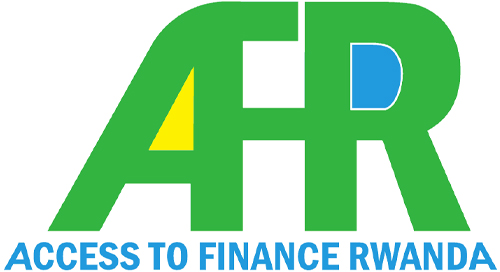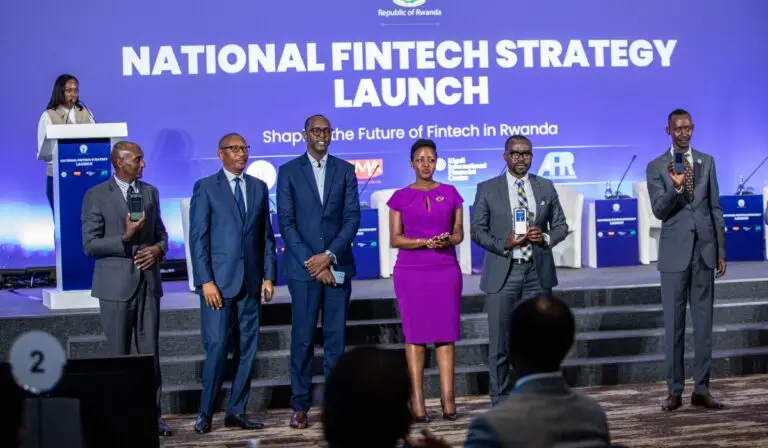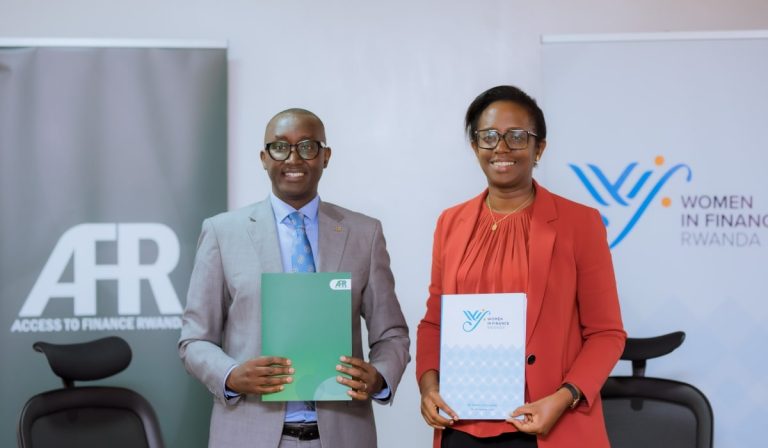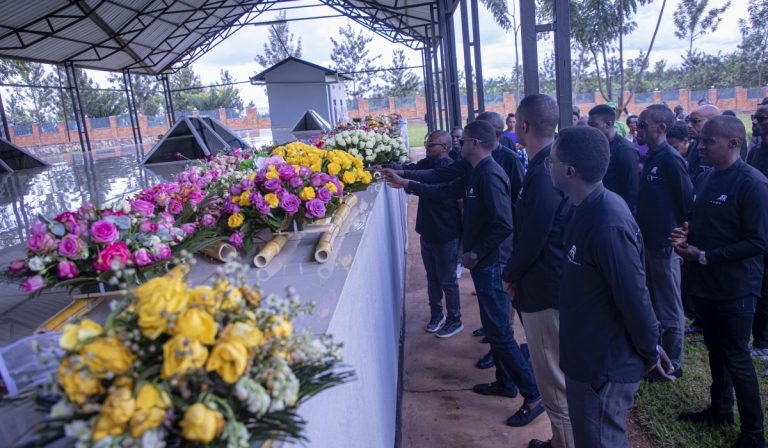Kigali – October 7th, 2020. Today, Access to Finance Rwanda (AFR) in partnership with the Association of Microfinance Institutions in Rwanda (AMIR) have signed an MoU with 11 SACCOs from different districts across the country in a joint effort to implement a project that will see deployment of a core banking software which will automate SACCOs’ business operations and boost integration into digital payment channels and facilitate reporting to the National Bank of Rwanda as regulator. This comes in addition to building the technical capacity of SACCO leaders and staff on governance, risk management, credit administration and products development to propel desired institutional growth.
The main objective of the project is to enable the SACCOs to serve their members in a faster, secure, and more efficient way. The automation of SACCOs’ operations is relevant and needed now more than ever especially during this period of COVID-19 pandemic where the public is encouraged to use digital channels and avoid cash transactions to curb down the spread of the pandemic.
Under the signed partnership, the SACCOs will be equipped with a Core Banking System (CBS) that will facilitate the automation of their operations through a shared IT infrastructure for all the 11 SACCOs that are members of AMIR. The platform will also facilitate provision of mobile banking services by the SACCOs.
Since the formation of Umurenge SACCOs in 2009, financial inclusion in Rwanda has increased from 48% in 2008 to 93% in 2020 (FinScope Survey 2020). However, even though financial inclusion efforts have improved across the country through SACCOs, many of them still operate manually and with minimum level of efficiency.
The partnership between AFR and AMIR aims to bring about efficiencies in the provision of financial services to low income Rwandans and improve their incomes and livelihoods. The 11 SACCOS that have signed the MoU are expected to serve around 50,000 underserved members and their families across the following districts: Rulindo, Gicumbi, Nyamasheke, Muhanga, Gasabo, Rubavu and Kicukiro.
“This system is used by other big financial institutions here in Rwanda,” said Aimable Nkuranga, Executive Director of AMIR, adding that the technology is more secure. “We believe that it will serve people in a faster and efficient way. This system is used by other big financial institutions here in Rwanda,” said Nkuranga adding that the technology is more secure. “We believe that it will serve people in a faster and efficient way.”
Jean Bosco Iyacu, the Acting Country Director, AFR revealed plans to expand to all private SACCOs. “We are starting with these 11 early birds, but we will soon expand to the rest because there is a will and the system is capable enough to serve more institutions,” he said. “It has been clear to us that most financial cooperatives do not have a digital system, and one could wonder, during the Covid-19 lockdown for instance, how the clients accessed banking services,” Iyacu pondered, stressing that the technology will drive financial inclusion further by serving the unbanked.
“We have been waiting for this moment impatiently,” said Faustine Ingabire, Manager of Zamuka SACCO based in Kicukiro District. “We lose a good number of potential clients for not using digital technology because they think we are incapable to serve them well.” She added that there are many operational costs that will be avoided by adopting technology, mentioning materials like stationary.
Ingabire said the new system will, among other things, cut down expenses by introducing agency banking, allow clients to use mobile and internet banking. “A smart system increases customer trust in microfinance institutions and hence attracts more clients,” she added.
AFR is a Rwandan not-for-profit organisation, with a strategic focus on stimulating financial sector development by collaborating with financial institutions and other stakeholders to increase access to and use of financial services by low-income people. The organisation does this by identifying and addressing constraints that prevent the financial market from reaching Rwanda’s low-income population and promoting innovations and learning that results in sustainable change within the financial sector. Improving access to financial services for women and underserved communities is a particular focus for AFR.
AMIR is an umbrella organization for Microfinance institutions in Rwanda whose main mandate is advocacy, capacity building of its members, industry performance reporting, sector coordination, and ensuring an inclusive and responsive microfinance sector.



